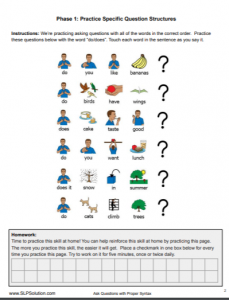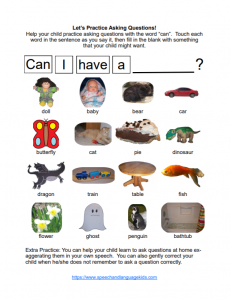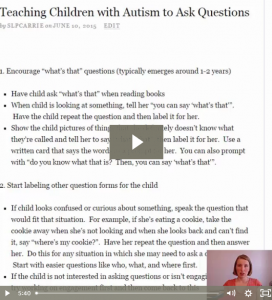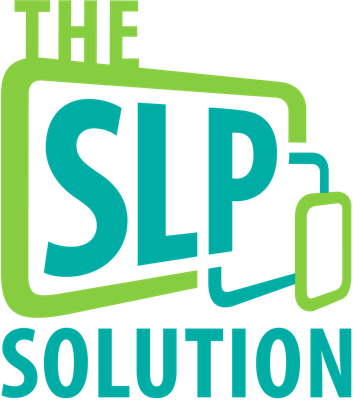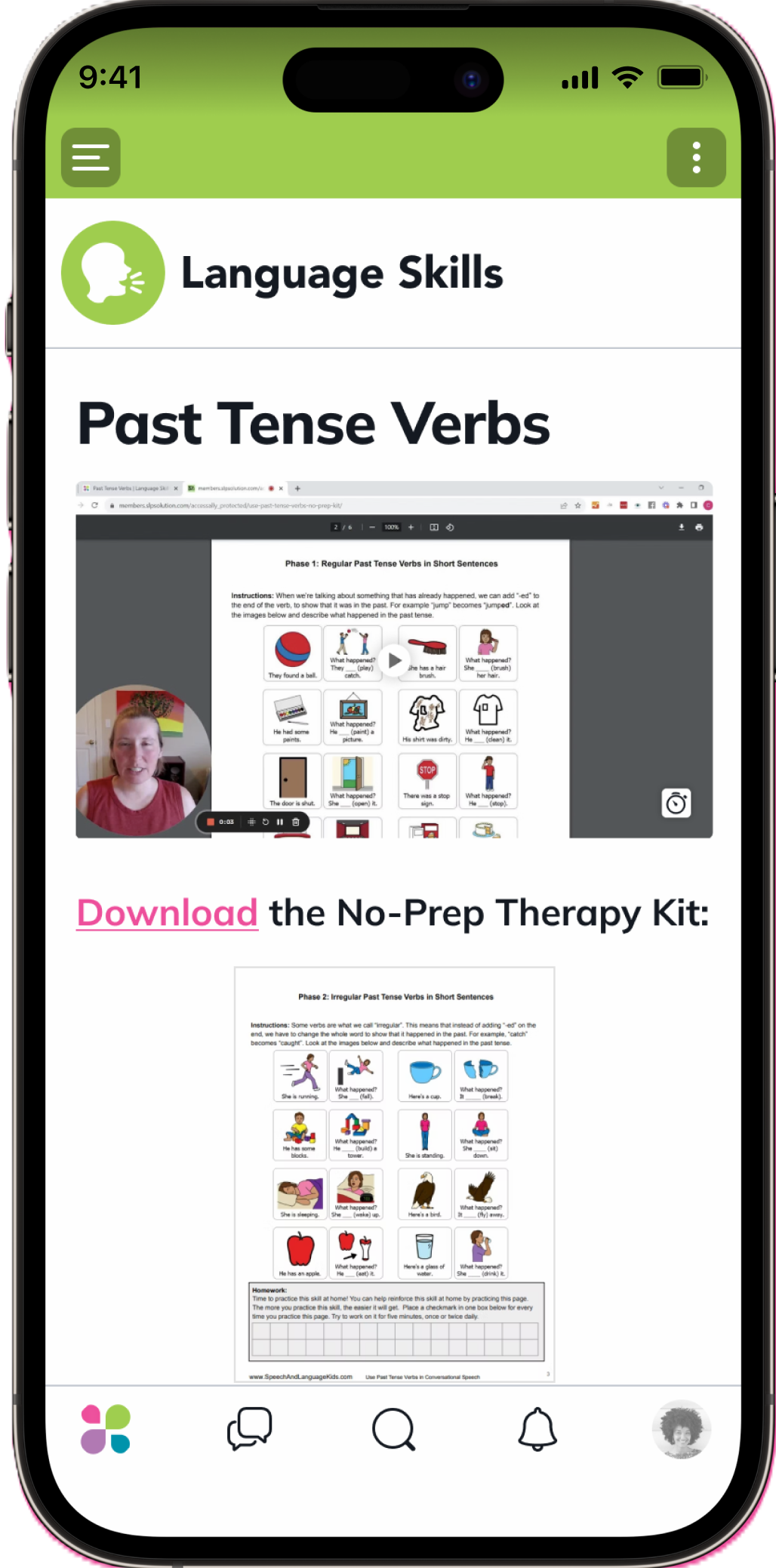Goal: Ask Questions with Proper Word Order
Sample Goal:
During a 10-minute conversational sample, Client will use correct word order when asking questions on at least 80% of observed opportunities (times when the client asks a question).
Download the No-Prep Therapy Kit:
We have a start-to-finish therapy kit that will give you everything you need to practice this skill in therapy and send home homework. Click the packet below to open it. Then, print it out and place it in the child’s notebook or binder.
Therapy Phases:
- Practice Specific Question Structures: Client will use visual cues to ask specific question forms during structured activities with correct word order with at least 80% accuracy.
- Practice Questions in Structured Conversation: Client will ask questions with correct word order during structured conversation tasks (such as role playing as a waiter and customer) with at least 80% accuracy with additional reminders or visual prompts to use correct word order as necessary.
- Ask Questions in Unstructured Conversation: During a 10-minute conversational sample, Client will use correct word order when asking questions on at least 80% of observed opportunities (times when the client asks a question).
What’s Next?
- Once the client is able to ask questions correctly during therapy, you can encourage parents and educators to remind the client to use correct word order for questions throughout the day.
- If the client doesn’t seem interested in asking questions at all, try this resource: https://members.slpsolution.com/resource/teaching-children-with-autism-to-ask-questions/
Supplemental Materials
Here are some other resources that may help you when working on this skill:
Can Questions Worksheets
Additional worksheet for practicing asking questions with “can” using proper word order.
Training Videos:
Need some extra help on treating this skill? Check out these related training videos:
How to Teach a Child to Answer Questions with Good Word Order (Overview)
Click Play Button to Play Video
Teaching Children with Autism to Ask Questions
If you have a client who isn’t interested in asking questions, try this!

